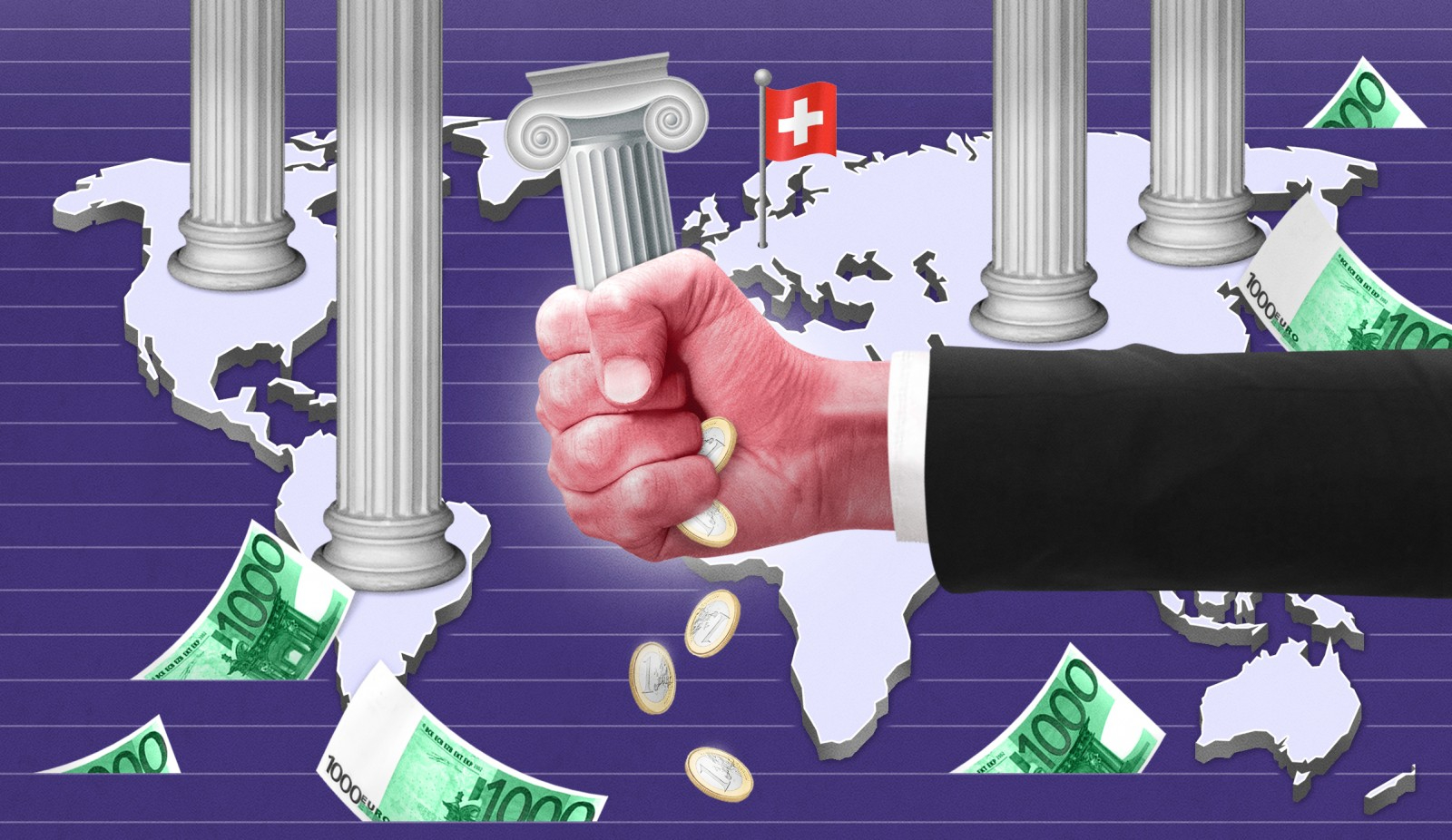Share post now
Article
Debt crisis: Disaster delayed
17.03.2022, Finance and tax policy
The corona pandemic is leading to a global debt crisis. Poor countries of the South are the ones bearing the brunt of it. Despite some multilateral efforts at debt relief over the past two years, the situation is growing steadily worse.

© Philip Bürli
With the onset of the corona pandemic two years ago, the issue of debt once again became front and centre in development policy debates. That it is one of the principal political points of contention in the struggle against global inequality is nothing new, however. Nor is it a secret that a fundamental change in the political handling of government debt is needed if the world's economies are to be put on a course towards developing more environmentally aware, more socially-oriented and democratic societies. As is so often the case, mere acknowledgement is often not a sufficient condition for practical changes when it comes to this topic. According to the annual Global Sovereign Debt Monitor published by the German NGOs Misereor and erlassjahr.de, 135 of the 148 countries it studies currently have a debt problem. Of that number, 39 are at severe risk of State bankruptcy, among them countries from all income groups, and their number has quadrupled since the onset of the pandemic.
Unlike the rich countries of the North, which generally borrow in their own currency and retain a certain flexibility in the management of their debts through their financial and fiscal policy institutions (including central banks), poor countries usually incur debt in foreign currencies like the US dollar or the Chinese renminbi. Moreover, because their economies are weaker, poor countries pay much higher interest on financial markets than rich ones – generally around 5%. Over recent years, Switzerland or Germany, in contrast, have been able to raise new debt at virtually zero interest rate.
Without debt forgiveness, poor countries will hardly ever escape the debt trap. But before debt forgiveness, the policy question must be addressed as to who will bear the costs of the credit default in question – the general public which, on the back of cost-cutting by government to pay for the debt reduction, will be faced with inferior public health, education and infrastructure systems and have less disposable income, or the creditors, who must forego interest and accept capital losses.
Damocles' sword of debt merely pushed further away
With respect to the current sovereign debt crisis in the Global South, the influential G20 countries, in collaboration with the IMF and the World Bank, have had the same response for the past year and a half: the societies in the affected countries must bear the cost of this crisis, not the creditors. Several initiatives were in fact launched within these multilateral institutions since the outbreak of the crisis to provide temporary relief to the indebted countries. Not all of them represent genuine ways out of the debt crisis, however. These initiatives include the IMF’s Catastrophe Containment and Relief Trust (CCRT) and the Debt Service Suspension Initiative (DSSI) of the G20 countries.
The IMF created the CCRT in 2010. It responded to the corona crisis by expanding the Trust to 29 low-income countries. Until April this year, the CCRT will take over all payments due from these countries to the IMF. The G20 countries created the DSSI following the outbreak of the corona crisis in the spring of 2020. It offers a debt moratorium to the world's 73 poorest countries that meet the eligibility criteria for lending from the International Development Agency (IDA) (owned by the World Bank); countries that availed themselves of the DSSI were able to suspend their 2020 and 2021 payments to bilateral lenders (i.e. other countries). But they will have to make good on these payments between 2023 and 2027. Whereas the CCRT covers only a limited number of countries and offers IMF debt relief only in isolated cases, the DSSI, for its part, merely postpones the problem. For the countries concerned, the Initiative was indeed helpful in allowing them some financial leeway for immediately addressing the pandemic. The problem is by no means solved, as is clear from the Global Sovereign Debt Monitor prepared by Misereor and erlassjahe.de. It states that in 2020, interest and principal payments by 58 low and middle-income countries to private creditors abroad exceeded the amount made available to them by those creditors in new lending over the same period.
The combination of moratoriums on public and multilateral loans and the refusal of private lenders like banks and commodity traders to participate in debt relief produces a situation in which private claims are offloaded on to government budgets. The Global Sovereign Debt Monitor further states that, at the same time, the breathing space that was created by the G20’s DSSI debt moratorium and the massive liquidity support provided were not taken advantage of to effect overdue debt architecture reform.
State bankruptcy with Swiss "assistance"
Switzerland bears special responsibility when it comes to dealing with the debt crisis. This is evident when we a look at the three countries in the Global South where State bankruptcy is already a reality. They can no longer fund debt servicing from their own national budget and are therefore dependent on IMF or World Bank help, or on the willingness of their creditors to waive their claims.
- In Chad, the only private creditor is called Glencore. The commodity trading corporation conducts most of its business transactions, including the granting so-called resource-backed loans (RBLs), via the Canton of Zug. The way RBLs work is that raw material-mining countries pledge future deliveries to traders, through forward contracts, in exchange for which they receive advance payments from those traders for the amounts concerned, at a specified price and in the form of credits. Despite being urged in the spring of 2021, even by World Bank Chief David Malpass, to grant debt relief to Chad, the Zug-based corporation has so far not budged.
- To date, Zambia has also been one of Glencore's leading raw material mining locations. Glencore's dealings also include large-scale, verifiable tax evasion – to the detriment of Zambia’s national budget and for the benefit of Switzerland’s tax authorities.
- In the case of Mozambique, illicit lending transactions with Credit Suisse are even largely responsible for bankrupting the State. Instead of being used to build up a parastatal fishing fleet, the loans disappeared into the pockets of the local economic and political elites.
These three countries are among those prioritised by the Swiss Agency for Development and Cooperation (SDC). The business dealings of major Swiss corporations, with which the Federal Government also collaborates abroad in the framework of its foreign policy, are undermining the credibility of Switzerland's commitment to sustainable development. It would therefore be salutary if the Federal Government could use its no doubt excellent connections with these corporations to persuade them to participate in the necessary debt relief.
